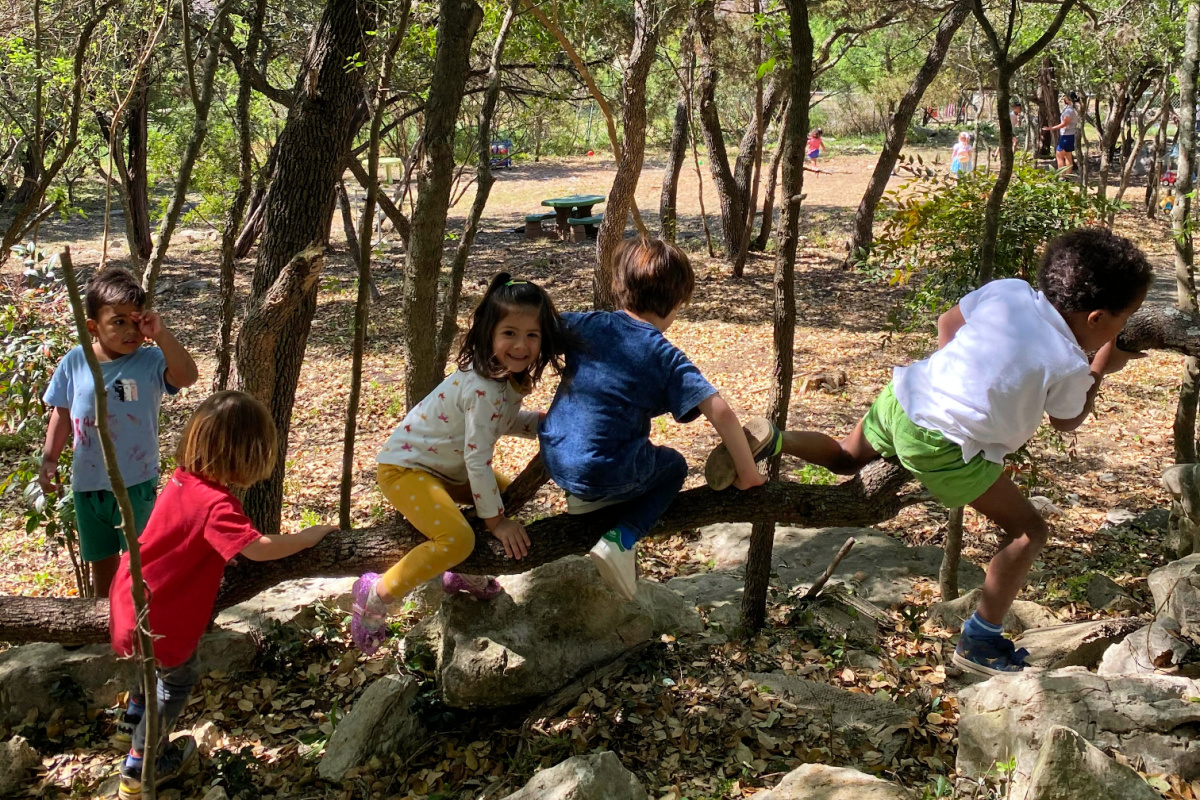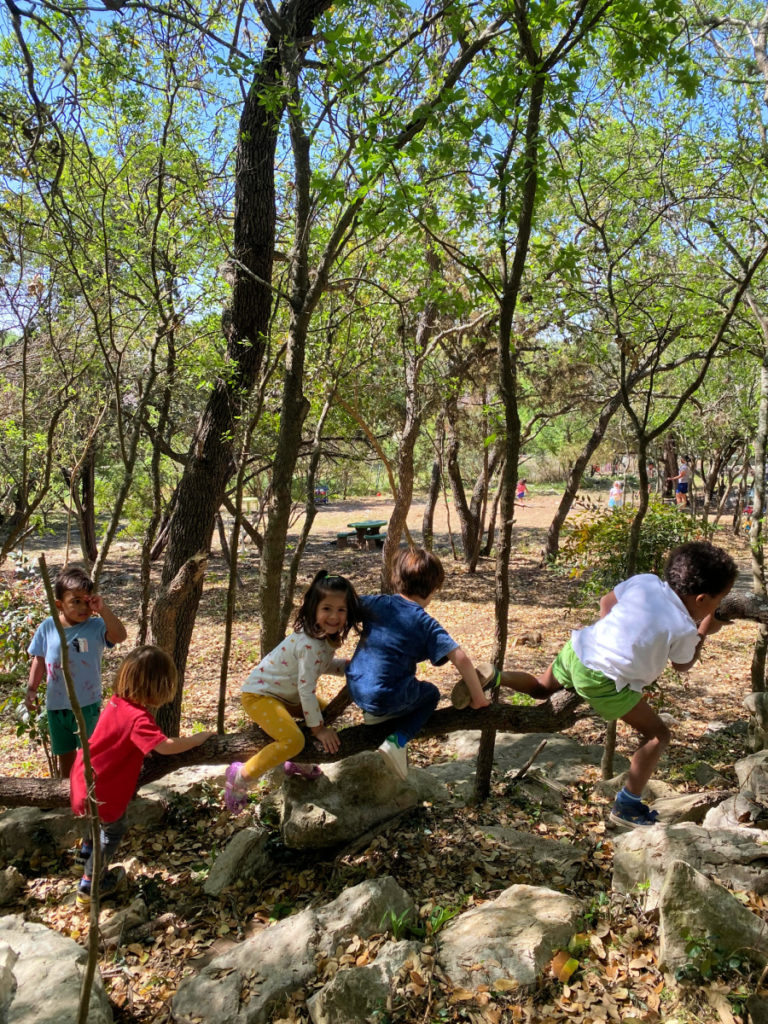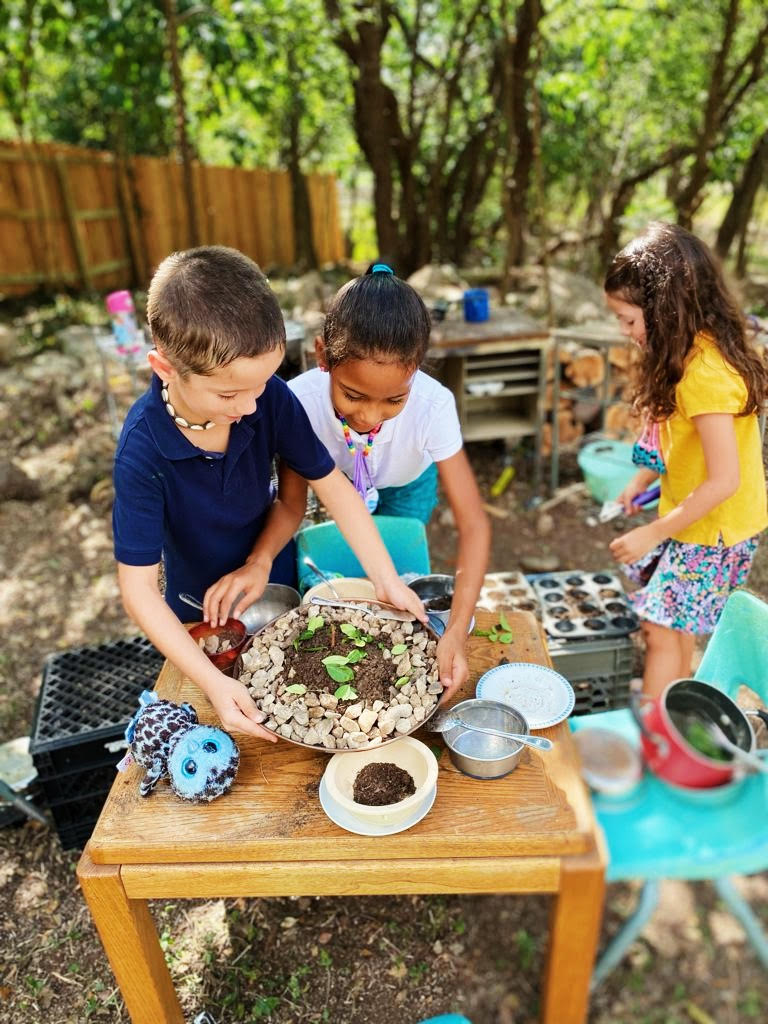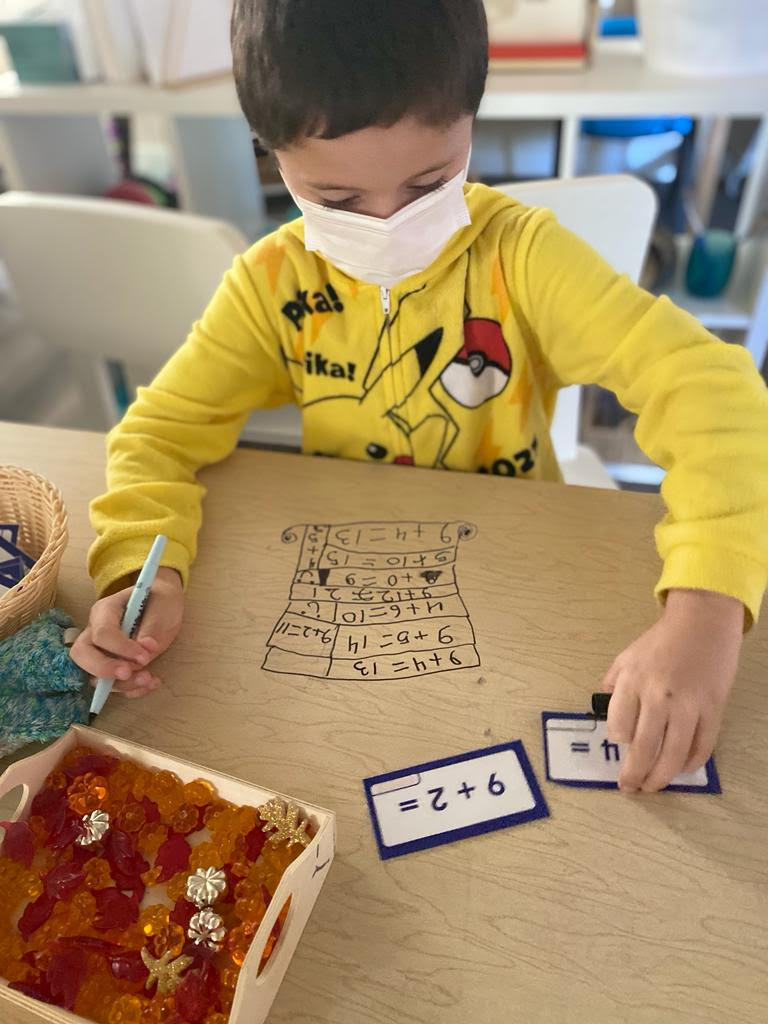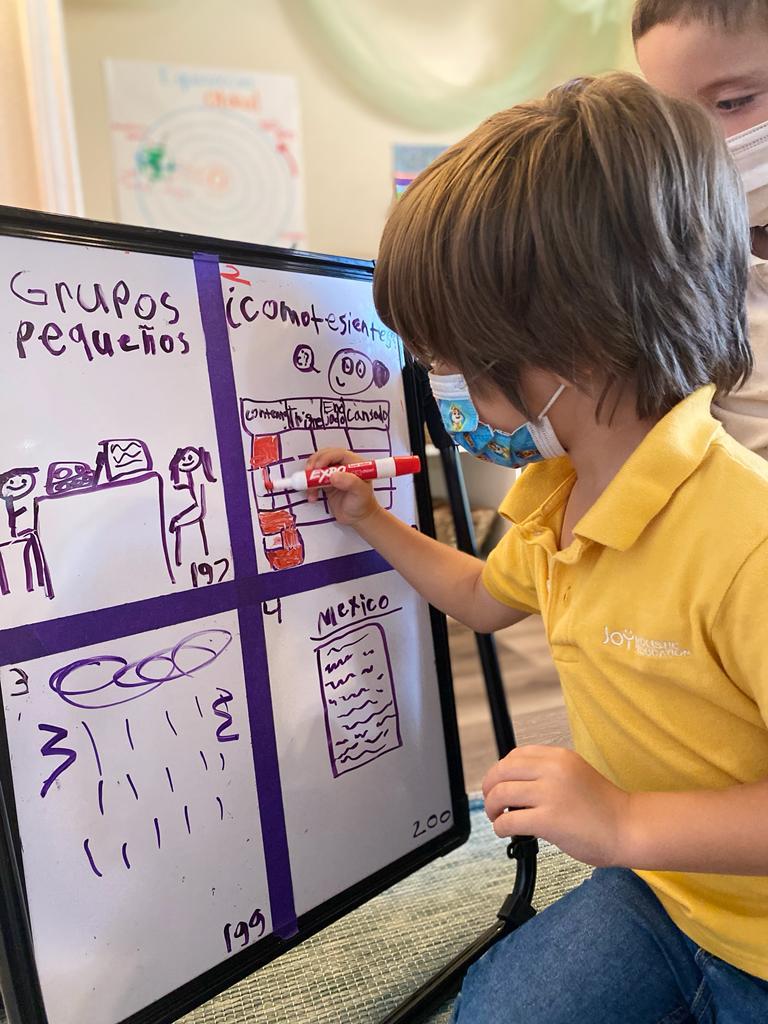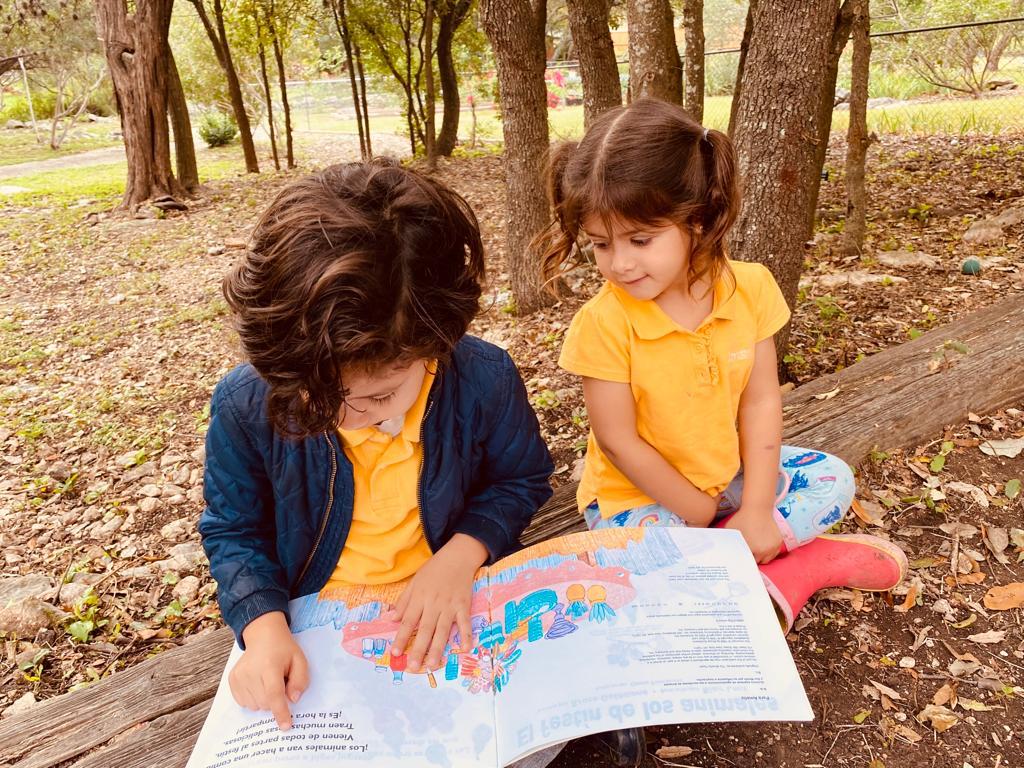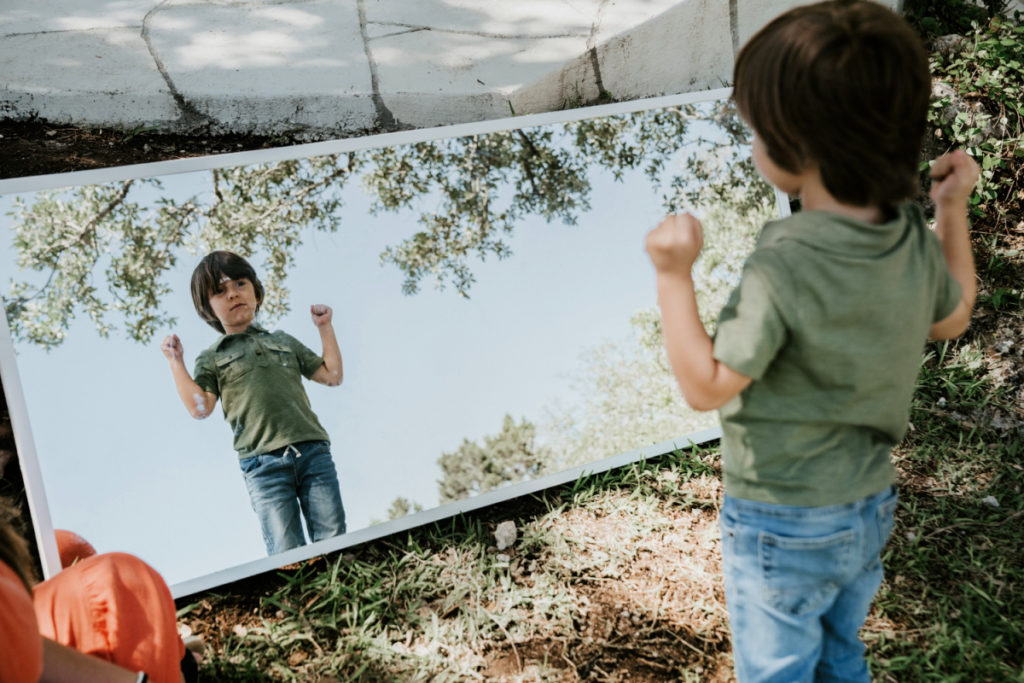We are proud to present this guest post by Adriana Becerra, Founder and Director of JOY Holistic Education, about the benefits of play-based learning.
JOY is on a mission to create a better world through holistic education. Our purpose is much more than learning academics: the heart of our mission is on empowering people to realize their identity, purpose, and ability to create a better world. Our model school is Spanish immersion/bilingual for young preschool to second grade, and it serves as an incubator for JOY’s philosophy and educational practices. In addition to the school, JOY offers consulting services and professional development to private and public schools.
There are many things that make JOY different from traditional schooling—for example, mixed-age and small classes with 15 students or less. In this article, we will focus on how JOY is promoting its focus on meeting state standards through a play-based approach and how it is innovating to address gaps in the early education field such as prioritizing outdoor learning and cultivating self-love and resiliency, active engagement in our community, and appreciation for diversity.
Meeting State Standards Through a Play-Based Approach
JOY believes that schools do not have to either sacrifice academics or holistic practice—we can have both. At JOY, state standards are met while still prioritizing free play and children leading their own learning. At JOY, there is a strong belief that childhood is not the preparation for adulthood but a sacred stage in human life that deserves to be treasured.
We can find evidence of this balance—having an academic learning focus and offering long periods of uninterrupted high-quality play—when visiting the school and looking at the daily schedule and assessments in preschool and elementary. Children are reading, writing, and engaging in math concepts at or beyond their grade level, and they are also playing freely for a big part of the day, walking barefoot outside, taking naps, and generally enjoying school. Especially if someone visits our elementary classroom, they will see children who are focused, engaged, and passionate about what they are learning, because it is relevant for them.
Why Do We Incorporate Play After the Preschool Years?
If we understand child development theory, we understand the importance of play and that it supports learning—regardless of whether children are three or eight years old. Play is simply the work of the child. It is how they make sense of the world and should not be relegated to recess. At JOY, the use of play is intentionally incorporated because this is the way to provide opportunities for socialization, creativity, and exploration that simply cannot be fostered through structured learning activities.
At the same time, we want our children to achieve academic success, too, because we know that this will open the doors to our children’s many dreams. Therefore, every classroom at JOY follows state guidelines, beginning with the Texas Prekindergarten Guidelines in the TEKS. Also, we use the GOLD Assessment to assess children formally twice a year, and we do it in the most appropriate way for young students: through observations in their natural setting, and not testing. The GOLD Assessment is aligned to Texas standards and provides us with concrete examples and common expectations of how every skill looks at different ages. This enables teachers and parents to focus on what kids can do, and informs us on how to support them to reach the next level.
How Is JOY Able to Balance Play and Meeting Academic Standards?
We often hear about play-based preschools, but we rarely hear about play-based elementary classrooms. There is a fear that if we do not focus all of our time teaching academic skills and content, that children will fall behind. However, our experience in child development and curriculum guidelines helped us to create our model in which children lead their own learning and teachers act as facilitators. These is what we have learned about meeting state standards through a play based approach:
- When teachers are actively engaged in children’s play, they can take advantage of natural teaching moments and scaffold their knowledge. By observing children’s play, educators gain insight about their interests and help them plan instruction that is meaningful to them. Also, observing play is the best way to assess children in a natural way. Children are more willing and excited to explore academic standards if they do it through playful learning.
- Creating intentional learning environments is key to merge play and academic standards. That is why at JOY the learning environment is considered the third teacher. Teachers must carefully create learning spaces in which children find opportunities to engage in art, science, literacy, math, etc. through playing in the indoor learning areas and outdoors. This is an excellent example of how children and teachers share control in the learning journey. Teachers plan and craft children’s learning environment and they select materials, while children decide how to interact with them and play.
- Incorporating play in our school’s daily routine helps our children in preschool and elementary be more focused, motivated, and purposeful about learning experiences. The most interesting projects are born during free play time. No other structured activity can provide the opportunities for developing social skills, collaboration, and conflict resolution that free play time provides. At JOY, we have children from two-years-old to second grade spending time outdoors playing and eating together. Can you imagine all the meaningful learning happening at this time?
Is JOY’s Approach Only About Free Play?
The simple answer is no—although children have an active role and autonomy in their learning, just as when they are playing. The daily routine at JOY incorporates one-to-one direct instruction, small groups, and large groups. During one-to-one instruction, teachers and children focus on working on individual goals, such as reading. Small groups can be conducted in heterogeneous groups, with children in different developmental levels, so the more advanced children or the older ones serve as models. There can also be homogenous groups, when a group of children need to focus on a certain educational goal and they work together to accomplish it. Time for teaching and learning in large groups is mostly dedicated to meditating, building community, and having class meetings for problem solving and planning the day, we never spend long times teaching academic concepts in a large-group setting.
At JOY, the curriculum is the child; we plan lessons and projects based on the interests of children. We see the value in learning from the success of others. We integrate concepts from other high quality models such as Montessori, Reggio Emilia, Conscious Discipline, Teaching Strategies, and High Scope, and we give teachers autonomy to decide what is best for their children. In our preschool classrooms, it is more common to see our children engaged in constructivist activities, while in our elementary classroom, projects rule their world. It is amazing to see how our children engage in projects for a long period of time, how they make the community part of their learning, and how they meet all standards by learning what they are interested in learning.
Addressing Gaps in the Education Field
At JOY, we know that it is not only about how children learn, but what they are learning. We are always asking ourselves these questions: What should be the focus of education? What should we be teaching at schools?
We realize that there is a disconnection between the problems in our world right now and what early learners are learning in schools. Schools spend most of the time focusing on academic content and have left out key issues like self-love, connection to nature, respect for diversity, and anti-racist education. At some point, performance was prioritized over happiness and wellbeing. This is why, at JOY, we have created four innovative curriculums that are at the core of our philosophy:
- Mirror, Mirror: We focus on fostering self-esteem and self empowerment, and cultivating resiliency and emotional wellbeing, through mirror play, mindfulness, and positive affirmations.
- The Earth Is My Home: We focus on spending time outdoors, caring for living things, and discovering the wonders within our world. We believe that if our children have the opportunity to connect with nature, they will feel part of it and will be committed to taking care of it.
- Gracias San Antonio Civic Engagement Program: JOY believes in creating a strong link between our children and the city we live in. We go on City Explorations and fall in love with our community. We also vote for a local organization and support it by creating art pieces throughout the year. We end the program with an art gallery and auction; all proceeds go towards supporting the non-profit organization elected. Through this program, children learn that regardless of age, young children can impact their community.
- We Are One: It is common that we talk about the importance of diversity and equity in schools, but we are afraid of talking about racism, privilege, and stereotypes with young children. This does not serve anybody; we believe young children are wise and empathetic to learn about this complex issue and become agents of change.
The reality is that the early years are so important: it is when we form our personality and our beliefs about other people and the world. We create conscious or unconscious attitudes and dispositions. JOY is dedicated to identifying the gaps in education, challenging the status quo, and proposing creative solutions to today’s pressing issues. If we want a better world, we must be creative and discover new ways to bridge the gaps. Our commitment is to create a non-stagnant model that evolves with our ever changing society. Learn more at joyholisticedu.com.
Charter Moms Chats
Watch Adriana Becerra, founder of JOY Holistic Education, speak with Inga Cotton on Charter Moms Chats on April 19, 2022 at 4:00 PM Central live on Facebook and YouTube.
Adriana Becerra is the founder of JOY Holistic Education. She began her career fifteen years ago as a Bilingual Teacher in Head Start at San Antonio ISD. Then she was part of the leadership team who opened Pre-K 4 SA and was instrumental in making it one of the best early childhood programs in Texas. In her last role before JOY, she supported school districts in Texas in their journey to strengthen leadership and transform their talent development systems as a consultant at The Holdsworth Center. In every role she has played, she has been passionate about challenging the status quo and reshaping the focus of education.
Throughout her career, she envisioned JOY, but it was not until she became a mom that she felt the urgency to materialize it. Inspired by what could be, she brought JOY to the world in 2020 during the pandemic. JOY represents everything she has learned and wishes for her sons Joaquín and Mariano, for her inner child and teacher, and for every person: A holistic education in which people feel safe and loved for who they are, so they treasure joy and grow equipped and committed to create a better world.
Read More About Play-Based Learning
- “Girl Talk Club at Promesa Academy,” Breanna Cadena and Olivia Sanchez, San Antonio Charter Moms, April 12, 2022
- “Guide to Enrolling Your Four-Year-Old in Pre-K 4 SA,” San Antonio Charter Moms, February 22, 2022
- “Outdoor Math Games for Kids,” Ellen Castro, San Antonio Charter Moms, July 22, 2021
- “Summer Learning Ideas for Kids,” Anindita Gupta, San Antonio Charter Moms, June 24, 2021
- “Nature-Based Education Helps Students Grow After the Pandemic,” Amanda McMickle, San Antonio Charter Moms, June 15, 2021
- “San Antonio Charter Schools Pre-K Options and Resources,” Amy Johnson, San Antonio Charter Moms, January 8, 2021
- “How to Teach Your Child to Read,” Mary Field, San Antonio Charter Moms, August 20, 2020
- “Early Learning Activities with Mrs. Gupta,” Anindita Gupta, San Antonio Charter Moms, August 7, 2020
- “Discover Math All Around Us,” Ambika Dani, San Antonio Charter Moms, June 10, 2020
- “Oh Snap! Math Games,” Vicki Leach, San Antonio Charter Moms, June 5, 2020
- “Pre-K 4 SA South Education Center Is a Model of High Quality Early Childhood Education,” San Antonio Charter Moms, October 2, 2017
